From now until the end of the year, especially the fourth quarter of 2025, is considered the "sprint" period for businesses to make maximum efforts to complete this year's goals. Reporters of Tin Tuc and Dan Toc Newspaper recorded the opinions of representatives of the Association and businesses on this issue.
Mr. Nguyen Quoc Hiep, Chairman of Vietnam Association of Construction Contractors (VACC):
The business environment has had positive changes.
In 2025, although there are still many difficulties, both objective and subjective, such as the US tariff policy or some restrictions on import conditions... causing Vietnam to face many challenges. However, if calculated from the time Resolution 68 was issued, it can be seen that the business environment has had positive changes. In addition to a stable policy environment, creating more confidence and boldness for investors, we see many very positive numbers. Specifically, GDP in the first 9 months of the year increased by 7.85%, and in the third quarter of 2025 alone, it reached an increase of 8.25% with the recovery of both supply and demand drivers.
Another indicator reflecting the reality of the business environment is the number of enterprises participating in the market in the first 9 months of 2025. According to the General Statistics Office, there were about 231,300 newly registered and returning enterprises, while the number of enterprises withdrawing from the market accounted for only about 6%. This shows that Vietnam's business environment is increasingly attractive. That result affirms the efforts and determination to effectively implement Resolution 68/NQ-TW on KTTN and strategic decisions on institutional breakthroughs and improving the business environment.

Mr. Nguyen Quoc Hiep, Chairman of Vietnam Association of Construction Contractors (VACC).
In addition, FDI capital, or foreign direct investment, also increased sharply, when in the first 9 months of the year alone, Vietnam attracted about 18.8 billion USD, an increase of 8.5%, the highest disbursement level compared to the same period in 5 years. It can be said that these are the important premises that helped Vietnam's economy achieve a growth rate of 7.85% in the first 9 months of this year.
With this momentum, it is believed that by the end of 2025, the growth rate can reach over 8%. These are figures that clearly show the remarkable development of the economy in general. However, the business community still faces many difficulties. From now until the end of the year, especially the fourth quarter of 2025, which is considered the "sprint" period, businesses must make maximum efforts to complete the goal.
In particular, the State's consistent stance of "not criminalizing economic and civil relations" also creates great confidence for investors. In business activities, sometimes mistakes can occur, but if they are handled in a supportive manner, not criminalized, then businesses will certainly feel more secure to develop.
What businesses want most now is synchronization in the legal system. The speed of amending and supplementing Laws has never been as fast as it is now. There are Laws that have only been issued for a year, but when shortcomings were discovered, they were immediately adjusted, for example, the Land Law. Market members are continuing to wait for the 10th Session of the 15th National Assembly when the National Assembly plans to amend the 2024 Land Law with a special resolution, both to conform to the 2-level local government model and to contribute to curbing the increase in land prices.
However, the problem lies in the synchronization between the Laws. Currently, each ministry and sector drafts its own Law, so the overlap and connection between the Laws is still limited. For example, the Decrees related to the method of calculating land prices: from Decree 102 (February 2024), then Decree 71 (July 2024) and most recently Decree 226 (issued on August 15, 2024). However, these Decrees have not been fully referenced with the Construction Law. Therefore, there are provisions such as the method of calculating added value stated in the Decree but cannot be applied in practice. In our opinion, the National Assembly should have a specialized Agency, closely coordinating with the Ministry of Justice to ensure the highest consistency between the Laws, avoiding the situation of "each doing their own thing".
Dr. Pham Dinh Doan, Chairman of Phu Thai Group:
Expect to receive many support policies
In general, a positive change can be seen in Vietnam. The business community expects to continue to receive stronger support policies from the State. The goal of Resolution 68 is to reduce at least 30% of administrative procedure processing time, reduce at least 30% of compliance costs and eliminate at least 30% of unnecessary business conditions by 2025 to create a more favorable business environment for enterprises.
Video sharing by Dr. Pham Dinh Doan, Chairman of Phu Thai Group:
In the coming time, there needs to be clear measurement indicators, which can be quarterly, 6 months or annually for each administrative unit. These measures will help to reflect more accurately the effectiveness of serving people and businesses; at the same time, create a basis for continued improvement.
In 2025, Phu Thai has basically completed the set growth targets. Moving into 2026, there will certainly be many opportunities and challenges. If we consider the development targets of the Party and the State, with a double-digit growth rate or even GDP must reach 8% or more, that is a very high growth rate compared to the world average. To achieve that, the main driving force must come from the private economic sector, especially the "locomotive" enterprises.
Enterprises continue to expect Vietnam to continue to promote institutional improvement and implement breakthrough Resolutions of the Politburo (especially Resolutions 57, 59, 66 and 68), along with Resolutions issued by the National Assembly and the Government.
With Phu Thai, we determined that we needed to grow more strongly, from 15 to 25%, to expand our scale and contribute to shouldering the common responsibility for the development of the business community and the economy.
After 3 months of implementing the 2-level local government, practice has shown that the administrative apparatus in communes, wards and special zones across the country has been put into operation in a disciplined manner. However, in the process of restructuring the apparatus, human resources still have some limitations, unable to immediately meet new requirements. This is an issue that needs to be quickly resolved so that the 2-level model can operate effectively.
With the development of technology, digital transformation and artificial intelligence (AI), many jobs today can be supported or partially replaced by technology, so streamlining administrative agencies does not greatly affect operational efficiency.
Mr. Nguyen Huu Thap, Chairman of Tuyen Quang Provincial Business Association:
The 10th session of the National Assembly considered a series of draft laws according to shortened procedures.
Resolution 68 has been implemented since May 2025, and the policies and guidelines from the central to local levels have been implemented very resolutely. However, when it comes to implementation, there are many problems.
Regarding institutions, ministries and branches are currently focusing on completing legal documents and amending many laws and decrees. The business community is looking forward to the National Assembly meeting in October 2025 to amend nearly 50 laws. Among them, there are many draft laws that contain difficulties and bottlenecks, specifically the Investment Law, Land Law, etc. Only when these laws are amended can the bottlenecks be removed to bring Resolution 68 into life.

Mr. Nguyen Huu Thap, Member of the Executive Committee of the Vietnam Chamber of Commerce and Industry (VCCI), Chairman of the Tuyen Quang Provincial Business Association.
After more than 3 months of operating the 2-level local government model, there are still shortcomings. Some tasks previously assigned to the district level are now being implemented at the commune level, but implementation is still confusing. There is a situation where businesses are slower than before in processing procedures and documents.
To solve this problem, we must focus on digital transformation, solving the current internal problem of applying artificial intelligence (AI), applying AI to solve administrative procedures at the commune and provincial levels to compensate for energy and professional work to new jobs.
Ms. Nguyen Thi Ngoan, MISA Financial Director:
Strong capital unblocking for businesses
In the traditional lending model, small and medium enterprises (SMEs) often face many obstacles: complicated records, lots of paperwork, lack of transparency in books and financial reports, causing the approval process to take from several weeks to a month. This not only increases costs but also causes businesses to miss out on business opportunities... In addition, suitable loan packages such as working capital loans or invoice loans are also difficult to access, making capital mobilization ineffective.

Ms. Nguyen Thi Ngoan, Chief Financial Officer of MISA.
To solve these bottlenecks, the trend of online, unsecured, and paperless loans is becoming the optimal solution. Understanding that, MISA has developed MISA Lending - a platform connecting business loans, using accounting, tax, invoice and cash flow data for banks to quickly and transparently appraise. With the 5-1-0 model (5 minutes to complete the application, 1 day of approval, 0 collateral) and the cooperation of 12 banks and credit institutions, MISA Lending creates a breakthrough in accessing capital for SMEs.
Since 2022, the platform has helped tens of thousands of businesses successfully borrow capital, with a rate of 30%, 10 times higher than traditional channels. The total disbursement value through MISA Lending has exceeded 30,000 billion VND. Recently, MISA continued to cooperate with Vietcombank to deploy an online unsecured loan package, providing flexible capital 24/7 for businesses. The solution takes advantage of available financial data on MISA accounting software and MISA MeInvoice electronic invoices, turning data into "assets" to help borrow faster and more effectively.
Enterprises can borrow up to 3 billion VND with an interest rate of only 7.39%/year, without collateral, to meet working capital needs, import goods, pay debts or salary and bonus expenses during peak periods...
Source: https://baotintuc.vn/kinh-te/go-moi-rao-can-de-doanh-nghiep-phat-trien-tang-toc-20251017092432976.htm





![[Photo] Cat Ba - Green island paradise](/_next/image?url=https%3A%2F%2Fvphoto.vietnam.vn%2Fthumb%2F1200x675%2Fvietnam%2Fresource%2FIMAGE%2F2025%2F12%2F04%2F1764821844074_ndo_br_1-dcbthienduongxanh638-jpg.webp&w=3840&q=75)


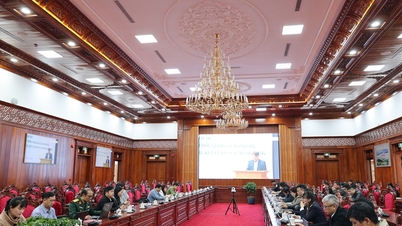

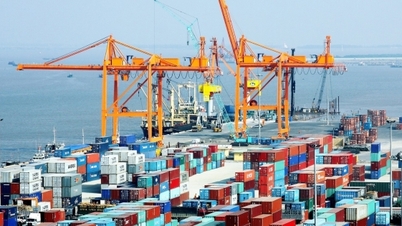







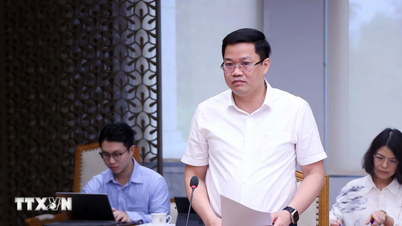



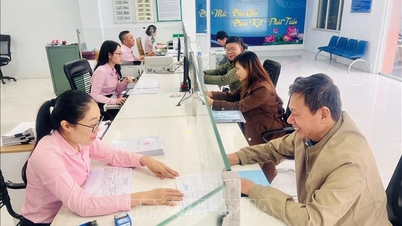




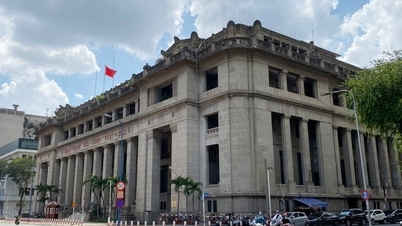







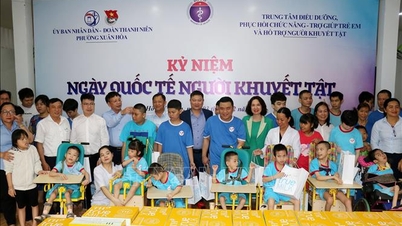




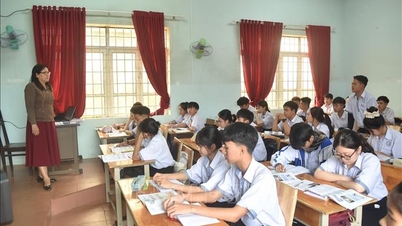


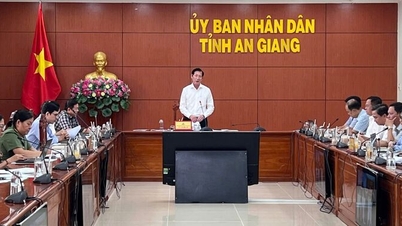






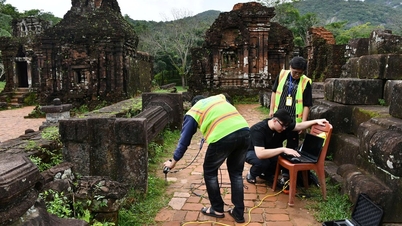



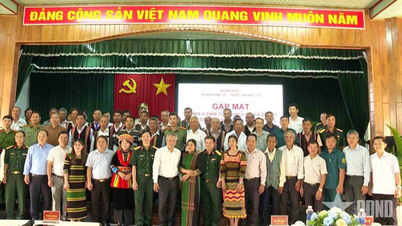






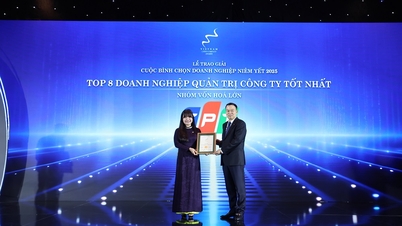



![[VIMC 40 days of lightning speed] Da Nang Port: Unity - Lightning speed - Breakthrough to the finish line](https://vphoto.vietnam.vn/thumb/402x226/vietnam/resource/IMAGE/2025/12/04/1764833540882_cdn_4-12-25.jpeg)
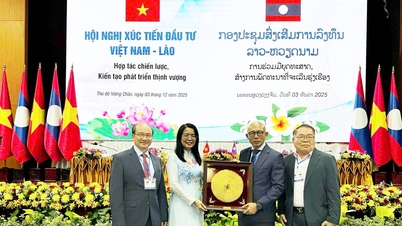

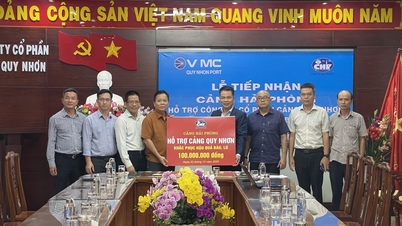












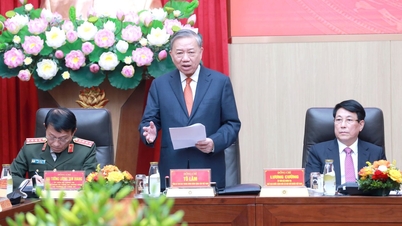

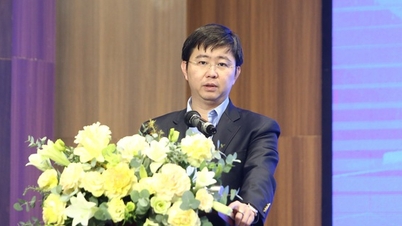

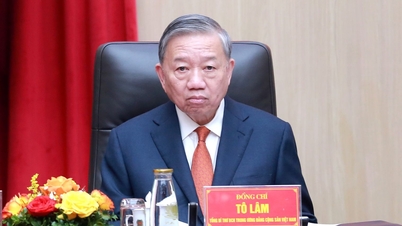











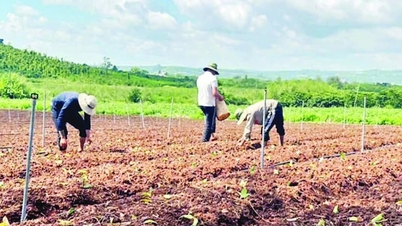













Comment (0)